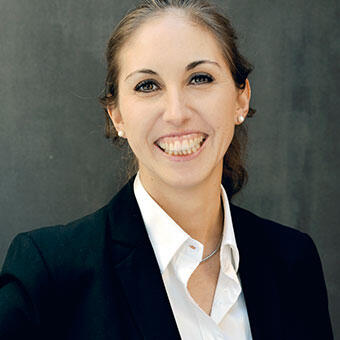Train-the-trainer programme for Mali
THE MAK'ED TEAM consultancy firm has introduced the Moodle learning management system at a peacekeeping school, with iMOVE acting as intermediary.

The "Ecole de Maintien de la Paix" (EMP-ABB) school in Mali's capital Bamako has a clear objective: to promote peace across the entire continent. It is therefore increasing the country's human resource capacity to support African peace operations and to strengthen the culture of peace. The educational institution is an international centre of excellence of ECOWAS, the Economic Community of West African States, and is attached to the Ministry of Defence and Veterans Affairs. More than 32,000 attendees have already been trained here including peace activists, students, journalists, and representatives of associations, NGOs, the police, and the military.
The coronavirus crisis meant a need for the school's focus to increasingly shift over to distance learning. At this point, however, capacities and competencies were not sufficiently available at a local level to support this. It was then that the school's former Director of Communication and Institutional Development contacted iMOVE in search of a training partner. Within a short period, the iMOVE network was able to identify a number of providers and obtain offers – and then ultimately engage THE MAK'ED TEAM as the appropriate provider.
Facilitating distance learning
THE MAK'ED TEAM is a German-based consultancy firm specialising in small and medium-sized companies and develops sustainable solutions for corporate management and development. Its clients include both private companies and public institutions. Since it was established in 2015, the company's work has had a strong international focus.
One of the core competencies of THE MAK'ED TEAM is in the setting up, development and management of training and educational academies to support skilled workers at a local level. Here young people gain qualifications which match labour market requirements. The training programmes are very practical, interactive and are created in cooperation with business. They are also frequently developed with German businesses to ensure that specific business needs in terms of qualified employees can be met. THE MAK'ED TEAM develops these concepts together with the providers, implements them and undertakes the management of the academies and centres.
The project for the institution in Mali had two goals. The first was to support administrators and the webmaster in effectively establishing the Moodle learning management system combined with Zoom for online video sessions. The second was to support salaried teachers in designing modules and courses for distance learning in order to produce attractive courses. Key to this was that the training should be conducted in French.
Teachers need to back the changes right from the start
The entire project, including the planning and launch phase, ran from November 2020 to September 2021. To begin with, an old learning platform was replaced by the new system. However, the focus right from the start, alongside establishing the basic technical parameters, was the instructors. They needed to be made familiar with virtual teaching and learning, as well as with issues concerning technical possibilities and methods of approach, and also motivating and supporting learners. The aim was for them to develop a basic understanding of the differences between in-person and online courses. Only in this way would they be able to effectively implement the new digital offers for pupils, develop webinars and in-person seminars using virtual components from their own practice, and back the changes right from the start.
Technical requirements and content-related expectations
Ann-Katrin Hardenberg, managing partner at THE MAK'ED TEAM, was faced with a range of challenges while supervising this project. "On the technical side there are problems with the local network infrastructure, and access to the internet cannot always be guaranteed. This is almost impossible to change. And that makes things difficult, particularly when you have to implement a project like this entirely from Germany, as was the case here. However, in another respect we were able to significantly improve the basic technical parameters. We trained an administrator during the project. He is entirely responsible for looking after the Moodle system on-site and is also able to develop it. With him and other colleagues, there is a team there to support teachers with the technical management."
According to Ann-Katrin, further difficulties were brought to light when communicating knowledge to trainers on the ground. "Most instructors are experts in peacekeeping and are widely respected in the community. They had expected to be provided with a finished e-Learning module which they would then be able to use in future to organise their teaching. But this was not the aim. Instead, the aim was to enable them to redesign their existing in-person modules themselves so they could be carried out virtually and for them go through the initial stages of implementation. In this respect, it was often necessary not just to have to compensate for lack of technical experience, which was often the case, but also to explain terminology and the different forms of learning with virtual media. The school were very involved with their management team in helping us with this. In the end the project has initiated a kind of 'change in the culture of teaching' and in organisational development. Our hope is that this development continues to gather pace and that gradually the learning management system will increasingly be used for the large number of courses on offer."

